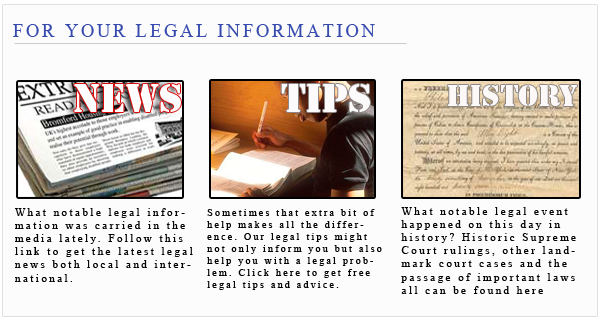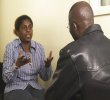Witness Intimidation
Protecting Witnesses:
There are several ways to protect witnesses:
- Criminal proceedings can be taken against the intimidators who could then face jail; and
- In extreme circumstances witnesses can be relocated.
If you are worried about intimidation you should talk to the police.
Witness Protection and Anonymity:
The openness of judicial proceedings is a fundamental principle enshrined in the Charter of Fundamental Rights and Freedoms (Constitutional Amendment) Act, 2011 and (hereinafter referred to as the “Charter”), the right to a fair trial, which states at Section 16 (1) that:
“Whenever any person is charged with a criminal offence he shall, unless the charge is withdrawn, be afforded a fair hearing within a reasonable time by an independent and impartial court established by law.”
The principle of open justice can sometimes act as a bar to successful prosecutions, particularly in homicides, organised crime and gun crime. Witnesses may fear that if their identity is revealed to the defendant, his associates or the public generally then they or their friends and family will be at risk of serious harm.
In most cases the police will establish whether a witness is in fear and should inform the prosecutor. Ideally, a discussion about the type of 'protection' that should be applied for will take place between the police and the prosecutor at the pre charge stage. Occasionally information about a witness being in fear may come from another source.
When informed that a witness is fearful of giving evidence, prosecutors must liaise closely with the Justice Support Unit and the Justice Protection Unit to consider the range of options available to them both at common law and by virtue of statute. Prosecutors should seek to ensure that, wherever possible, the witness's fear is allayed and that they are given the requisite protection. Prosecutors must also ensure that the witness's rights under the ECHR are acknowledged and protected.
Are proceedings in camera or open to the public?:
There are certain situations where proceedings can be heard in camera, i.e. in private, when the public are excluded and the doors of the court-room are closed. Thus in cases of sexual offences or cases where a gun is used, those matters are dealt with in camera.
Excluding the public by virtue of the court's inherent common-law powers is justifiable if the administration of justice so requires. The question for the court to decide is whether a sitting in private is necessary for the administration of justice, for example if there is a possibility of disorder. A decision to sit in camera is not justified merely on the ground that a witness would find it embarrassing to testify.
The necessity principle may be of relevance if a witness is unable or unwilling to give evidence unless the public gallery is cleared; the principal object of the courts is to secure that justice is done. Thus, where you have a case which is opened to the public, and it is felt an application ought to be made for the matter to be in camera, then before making an application for a hearing, or part of a hearing, to be held in camera, prosecutors must consider whether the concerns of the witness could be adequately met by the use of appropriate special measures.
The disadvantage of applying for all or part of a case to be heard in camera is that the outcome of the application will not be known until the trial is underway which may not provide the reassurance that witnesses seek at an early stage in the proceedings.
Witness Protection:
In some very serious cases the risk to a witness is so great that they may need to relocate and even change their identity. Witness Protection is the means of providing protection measures for people involved in the criminal justice process who find themselves at risk of serious personal harm as a result of that involvement.
Stay Connected








